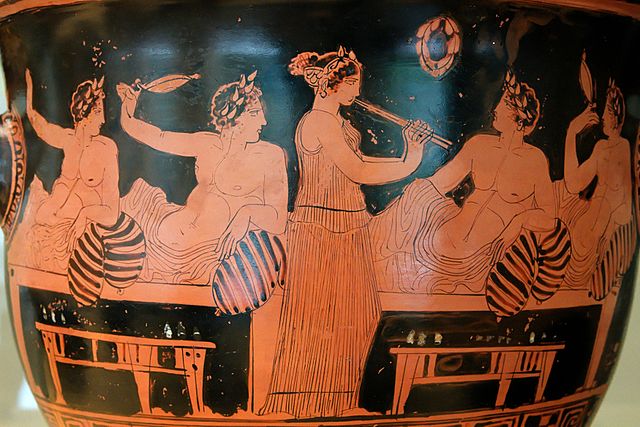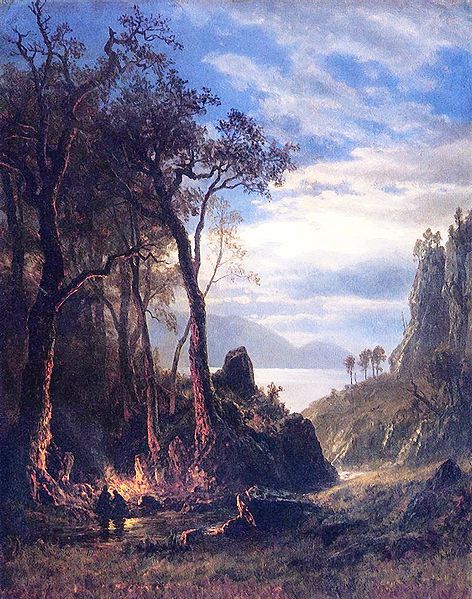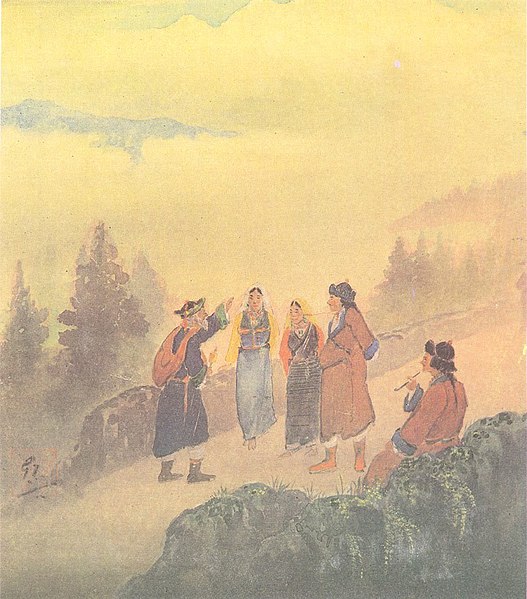Entertainment is a form of activity that holds the attention and interest of an audience or gives pleasure and delight. It can be an idea or a task, but it is more likely to be one of the activities or events that have developed over thousands of years specifically for the purpose of keeping an audience's attention.
Banqueters playing Kottabos and girl playing the aulos, Greece (c. 420 BCE). Banqueting and music have continued to be two important entertainments since ancient times.
Albert Bierstadt's The Campfire depicts storytelling, a universal form of entertainment
Mosaic showing Roman entertainments that would have been offered at the gladiatorial games, from the 1st century
Tournament before an audience and musicians (14th century)
Storytelling is the social and cultural activity of sharing stories, sometimes with improvisation, theatrics or embellishment. Every culture has its own stories or narratives, which are shared as a means of entertainment, education, cultural preservation or instilling moral values. Crucial elements of stories and storytelling include plot, characters and narrative point of view.
The term "storytelling" can refer specifically to oral storytelling but also broadly to techniques used in other media to unfold or disclose the narrative of a story.
The Boyhood of Raleigh by Sir John Everett Millais, oil on canvas, 1870. A seafarer tells the young Walter Raleigh and his brother the story of what happened out at sea.
A very fine phad painting dated 1938 A.D. The epic of Pabuji is an oral epic in the Rajasthani language that tells of the deeds of the folk hero-deity Pabuji, who lived in the 14th century.
Story Teller by Gaganendranath Tagore
Orunamamu storyteller, griot with cane








